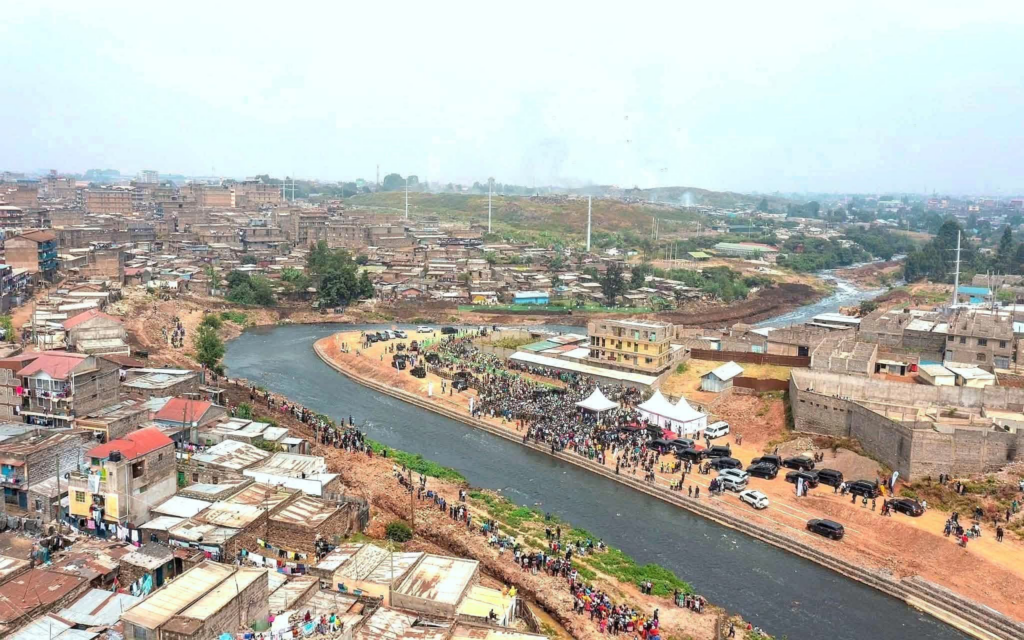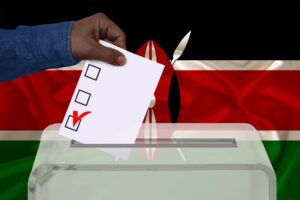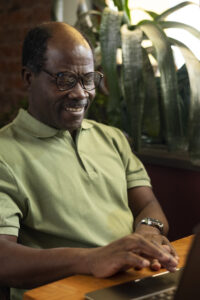While our nation is distracted by noise and political unrest, something quietly significant is unfolding; not on television or social media, but along the banks of Nairobi’s rivers, where trash once flowed more freely than clean water. There, a miracle is beginning to happen.
During the early stages of this national project, I was invited by its supporters to share my advice. What I saw was more than just a cleanup effort. It was a plan to restore dignity, revitalize livelihoods, and reconnect a city with its soul.
Over 43.45 kilometers of the Nairobi River are being revitalized from Ondiri Swamp to Dandora Falls. This effort is not just about beautifying our capital; it’s a comprehensive transformation involving housing, walkways, bridges, sanitation, trees, markets, and a renewed sense of shared purpose.
To understand the urgency, consider this: nearly 200 informal settlements line the riverbanks. They shelter 2.5 million people, which is 60 percent of Nairobi’s population, living on just 6 percent of the land. These communities have long faced floods, disease, and neglect. But that is beginning to change.
What is emerging includes thousands of new homes for low-income families. Footbridges connect previously isolated areas. Over 50 percent of Nairobi’s vegetables are grown near these polluted rivers. Cleaning them protects both our health and our food supply.
A nearly 9‑mile green corridor for walking and biking is being built next to the water. It will extend from Museum Hill to Eastleigh.
This project will generate both short-term and long-term livelihood opportunities for thousands of Kenyans. From artisans and engineers to waste sorters, cyclists, and tree nursery workers, entrepreneurs are transforming the river into a workplace.
The Kenya Defence Forces, with their unmatched discipline and national honor, are carrying out this mission with the steadiness and precision it deserves. However, the moral compass of this effort must be the Commission itself. They must walk as one, speak boldly, and earn the nation’s confidence through action, not just association. Let them not depend on the President’s voice but rise as the living voice of the rivers. Let corruption find no refuge near them. This is their sacred chance to set a new national standard and to do so with integrity that history will praise.
For this transformation to endure, three truths must be kept in mind.
First, people must be at the core of this mission. The mothers in Mathare and the youth in Kariobangi should not only benefit but also feel a sense of belonging. River Connect Kiosks, built from recycled containers, are more than service points; they are spaces for planting trees, building skills, and generating income. Let communities see the river as a source of both pride and prosperity. When people earn from what they protect, they will defend it for generations.
Second, systems must be stronger than structures. A wetland is useless if it is not cared for. A market needs oversight. Every asset, park, road, toilet, or bridge must have governance behind it. Otherwise, beauty will fade before the cement even dries.
Third, we must defend integrity at all costs. This project is expected to increase land values by up to nearly 40 percent. But if it loses public trust, the river will be lost again. Let us open the books. Celebrate truth. Reward those who protect the mission with integrity.
Downstream is Thwake Dam, Kenya’s largest water reservoir, which is nearly complete, with a capacity of 688 million cubic meters. Tens of thousands of lives depend on the purity of what flows into it. If we pollute the river, we endanger them. But if we clean it, we protect our future.
A tree with deep roots survives every storm. This isn’t just about river work; it’s about nation-building, grounded in justice, dignity, and shared hope. Let others chase the noise. We will shape the future, one clean river at a time.
Think green, act green!



